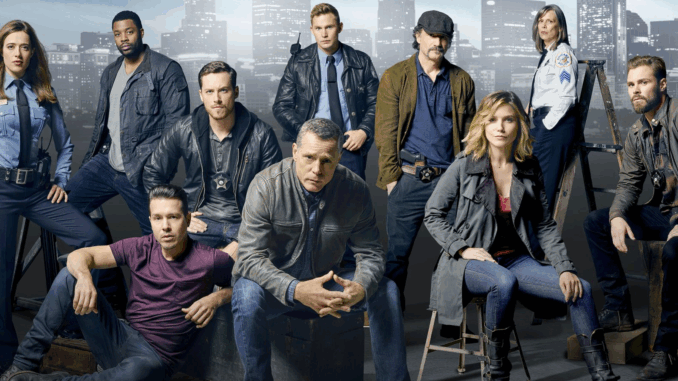
NBC’s Chicago P.D. has captivated audiences with its gripping narratives and complex characters. While the show is known for its intense storylines, many viewers wonder: how much of what we see is based on real-life events? In this article, we’ll delve into the real stories that have inspired some of the most memorable cases on Chicago P.D., exploring the fine line between fact and fiction.
Inspired by Real-Life Crime Trends
While Chicago P.D. doesn’t directly adapt specific real-life cases, it draws heavily from the broader criminal landscape of Chicago. The city’s challenges with gang violence, drug trafficking, and organized crime provide a rich backdrop for the show’s narratives. By focusing on these prevalent issues, the series captures the essence of urban policing without replicating exact events.
The Influence of Real Police Work
The authenticity of Chicago P.D. is bolstered by its collaboration with real-life law enforcement professionals. The show has employed actual Chicago police officers as extras, ensuring that the depiction of police procedures and environments is as realistic as possible. This collaboration helps bridge the gap between scripted drama and real-world policing.
The Case of Laquan McDonald
One of the most significant real-life events that influenced Chicago P.D. was the 2014 shooting of Laquan McDonald. The incident sparked widespread protests and raised questions about police accountability. While the show didn’t directly portray this case, the public’s reaction and the ensuing debates about police practices have been reflected in various episodes, highlighting themes of justice and reform.
The Role of Investigative Journalism
The wrongful conviction of Joseph Majczek and Theodore Marcinkiewicz in 1932 serves as a poignant example of the power of investigative journalism. Their case, which was based on coerced confessions, was later overturned due to the efforts of journalists who uncovered the truth. This story underscores the importance of thorough investigations and has inspired storylines that emphasize the pursuit of justice.
The Impact of Predictive Policing
The Chicago Police Department’s implementation of predictive policing, particularly the “Heat List,” has been a subject of controversy. The list aimed to identify individuals at risk of being involved in violence but faced criticism for potential biases and inaccuracies. Episodes of Chicago P.D. have touched on the ethical dilemmas associated with such practices, prompting viewers to consider the balance between crime prevention and civil liberties.
Real-Life Inspirations Behind Specific Episodes
Several episodes of Chicago P.D. have drawn inspiration from real-life events:
-
“The Price of Admission”: This episode, which deals with the illegal sale of prescription drugs, mirrors the real-world opioid crisis and its impact on communities.
-
“The Song of Gregory Williams Shaw”: Inspired by the real-life case of a man who was wrongfully convicted and later exonerated, this episode delves into the flaws of the justice system.
-
“Chasing Monsters”: Reflecting the challenges faced by law enforcement in dealing with serial crimes, this episode highlights the complexities of criminal investigations.
The Fine Line Between Fact and Fiction
While Chicago P.D. incorporates elements of real-life events, it is ultimately a work of fiction. The show’s creators aim to entertain and provoke thought, not to serve as a documentary. However, by drawing from actual events and societal issues, the series fosters a deeper understanding of the challenges faced by law enforcement and the communities they serve.
Conclusion
Chicago P.D. masterfully blends fact and fiction, using real-life events and issues as a foundation for its compelling narratives. While the cases depicted are not direct representations of actual events, they are inspired by the complexities and challenges of urban policing. By exploring these real stories, the show offers viewers a nuanced perspective on crime, justice, and the human condition.
FAQs
1. Is Chicago P.D. based on real-life events?
While the show is inspired by real-life crime trends and law enforcement practices in Chicago, the specific cases depicted are fictional.
2. Do real police officers appear on the show?
Yes, Chicago P.D. has employed actual Chicago police officers as extras to ensure authenticity in its portrayal of police procedures.
3. Has Chicago P.D. addressed real-life controversial cases?
Yes, the show has touched on real-life events, such as the Laquan McDonald shooting, by exploring themes of justice and police accountability.
4. Are the storylines on Chicago P.D. based on actual criminal cases?
While not direct adaptations, many storylines are inspired by real-world criminal issues and investigations.
5. How accurate is the portrayal of police work on Chicago P.D.?
The show strives for accuracy by consulting with law enforcement professionals and incorporating realistic procedures and environments.
